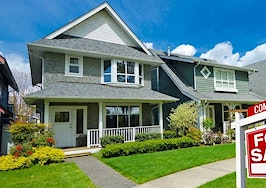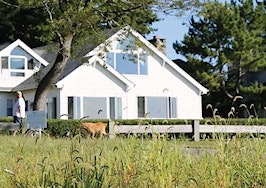The National Association of Home Builders in conjunction with Wells Fargo released the results of its latest housing market index (HMI) on Tuesday, which measures builder confidence from scores of 0 to 100 in current single-family home sales and sales expectations for the upcoming six months.
Scores above 50 signal that more builders view conditions as good than poor, said the report.
October’s HMI for newly built single-family homes rose 1 percentage point month-over-month to 68, continuing a five-month trend of scores in the high 60s. The index for current sales conditions and sales expectations for the upcoming six months both increased 1 percentage point month-over-month to 74 and 75, respectively.
Lastly, buyer traffic in October ticked up four percentage points to an index of 53.
NAHB Chairman Randy Noel says builders’ confidence has remained strong due to robust buyer demand and declining lumber costs, which reached an all-time high of $639 per 1,000 board feet in May.
“Builders are motivated by solid housing demand, fueled by a growing economy and a generational low for unemployment,” Noel said in a statement. “Builders are also relieved that lumber prices have declined for three straight months from elevated levels earlier this summer, but they need to manage supply-side costs to keep home prices affordable.”
But, NAHB Chief Economist Robert Dietz says that worsening affordability could be the juggernaut that undercuts the progress experienced in the last half of the year.
“Favorable economic conditions and demographic tailwinds should continue to support demand, but housing affordability has become a challenge due to ongoing price and interest rate increases,” Dietz said. “Unless housing affordability stabilizes, the market risks losing additional momentum as we head into 2019.”
Methodology
Derived from a monthly survey that NAHB has been conducting for 30 years, the NAHB/Wells Fargo Housing Market Index gauges builder perceptions of current single-family home sales and sales expectations for the next six months as “good,” “fair” or “poor.” The survey also asks builders to rate traffic of prospective buyers as “high to very high,” “average” or “low to very low.” Scores for each component are then used to calculate a seasonally adjusted index where any number over 50 indicates that more builders view conditions as good than poor.












